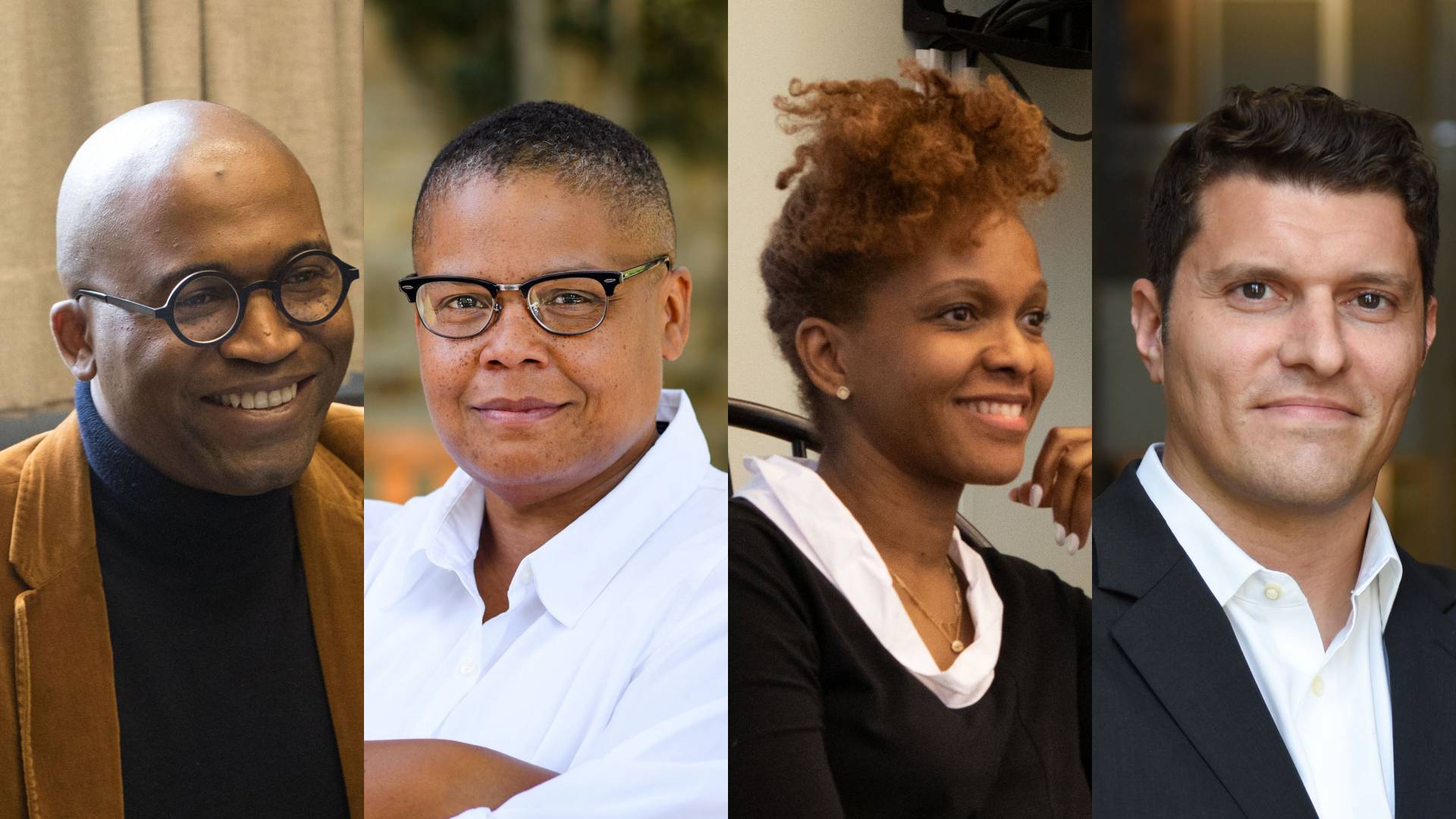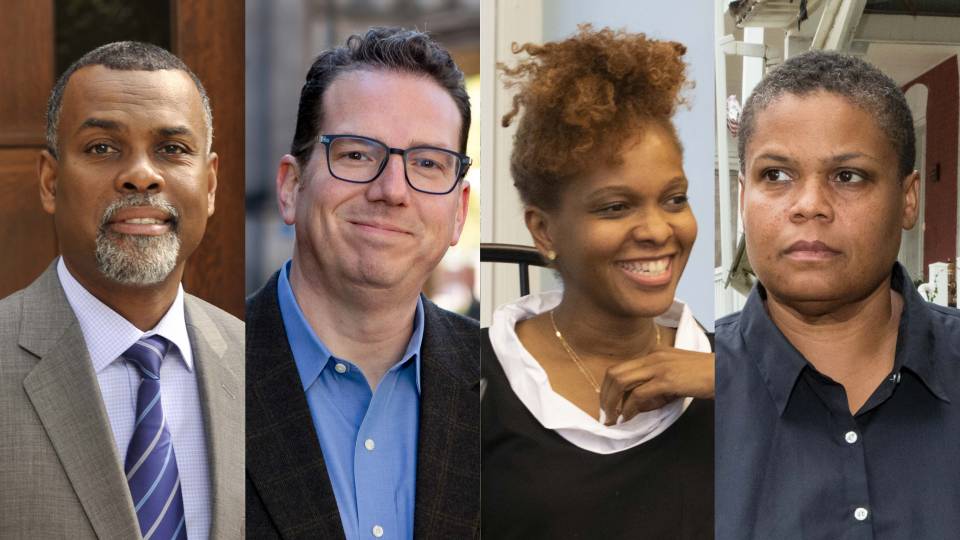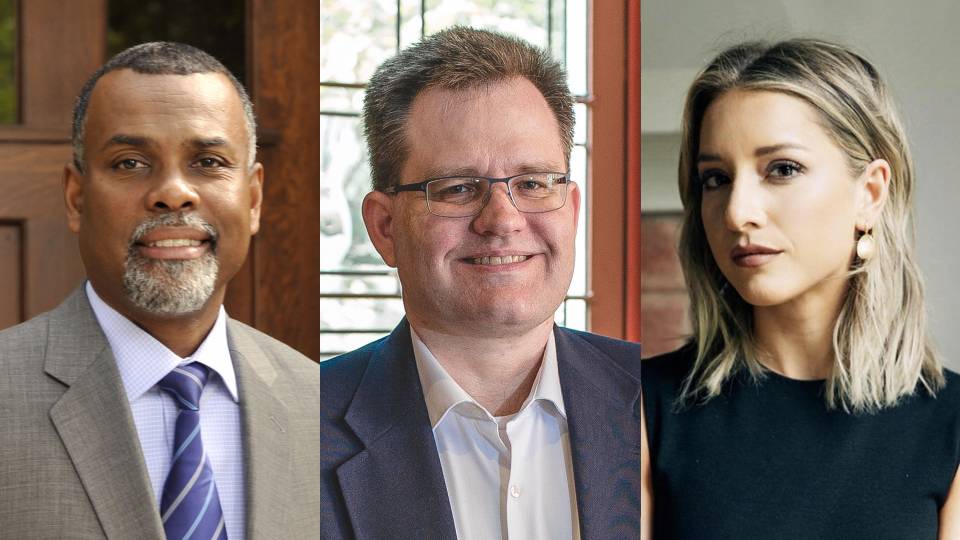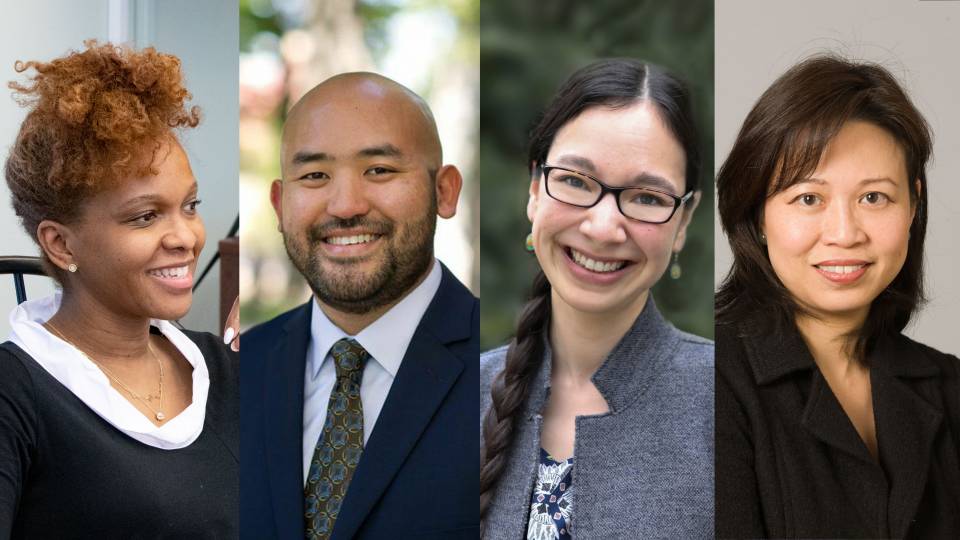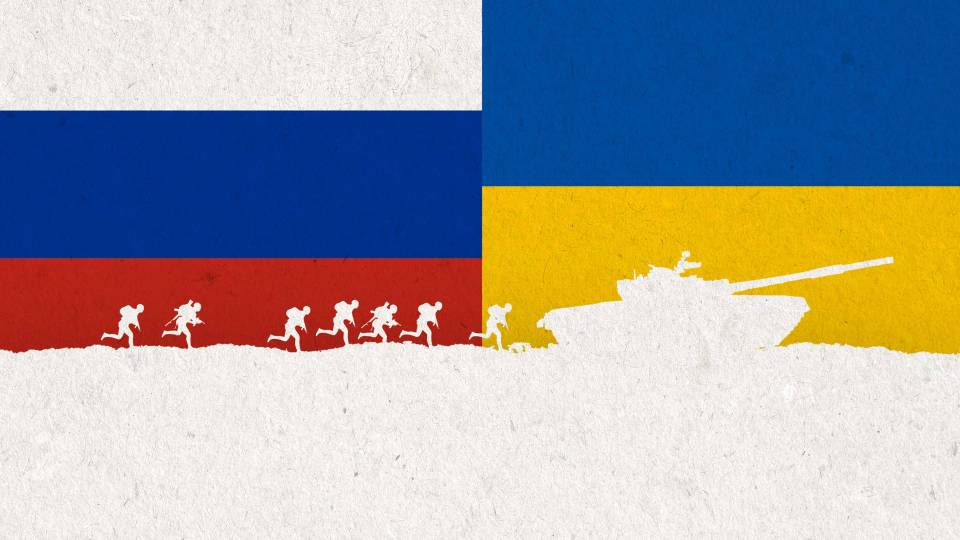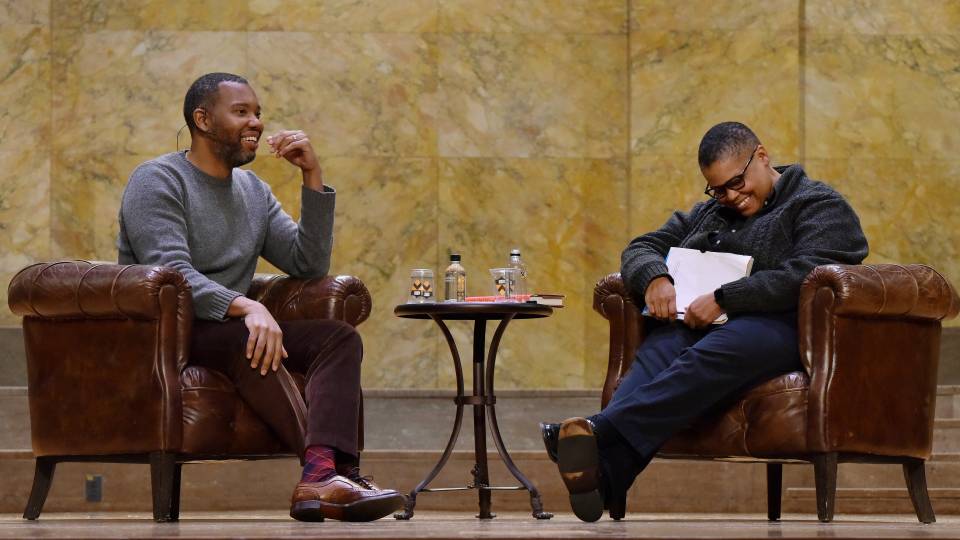Frederick Wherry (left), the Townsend Martin, Class of 1917 Professor of Sociology; Keeanga-Yamahtta Taylor, assistant professor of African American studies; Imani Perry, the Hughes-Rogers Professor of African American Studies; and Jonathan Mummolo, assistant professor of politics and public affairs.
During times of national crisis — such as the one we are facing around racial justice and policing — voices across Princeton University speak directly to the moment. The University is grounded in a mission of teaching and research, and our scholars, experts and alumni are joining the national dialogue in the context of the trial of Derek Chauvin after the death of George Floyd.
As our country continues to grapple with this crisis in light of the recent deaths of 20-year-old Daunte Wright in Minneapolis and 13-year-old Adam Toledo in Chicago, several Princeton faculty members and alumni are appearing in virtual public conversations and using opinion pieces, media appearances, and social media conversations to help navigate a path forward, drawing on their research as well as their own personal experiences.
Read, view and listen to some of their contributions to this national conversation.
Closer to home, Princeton is also offering resources to the University community, including virtual processing spaces, for help in grappling with this topic on a more personal level.
Faculty: In the media and research
- Eddie Glaude Jr., the James S. McDonnell Distinguished University Professor and professor of African American Studies. On WBUR, “Eddie Glaude on the trial of Derek Chauvin and the country's racial reckoning”; commentary on MSNBC; and opinion piece in TIME, "The Derek Chauvin verdict is haunted by the ghosts of those who found no justice."
- Nolan McCarty, the Susan Dod Brown Professor of Politics and Public Affairs, and interim dean of Princeton's School of Public and International Affairs (SPIA), statement on behalf of SPIA, "Justice for George Floyd."
- Jonathan Mummolo, assistant professor of politics and public affairs. Mummolo co-founded the “Research on Policing Reform and Accountability” project, a multi-institution team of scholars and experts focused on developing cutting-edge statistical techniques to measure racial bias in policing, evaluate policing policy reforms and improve the performance of policing organizations. A recent study from the project, “The role of officer race and gender in police-civilian interactions in Chicago” was published on Feb. 12 in Science.
- Imani Perry, the Hughes-Rogers Professor of African American Studies. On WBUR, “Professor Imani Perry looks at police violence through lens of history” and on WHYY, "A nation reacts to the guilty verdict of Derek Chauvin."
- Patrick Sharkey, professor of sociology and public affairs. Interview with Michel Martin on PBS’ Amanpour & Company: “We’ve created the conditions for this kind of police brutality" and opinion piece in the Washington Post "We can’t reimagine safety without being clear-eyed about America’s gun problem."
- Keeanga-Yamahtta Taylor, assistant professor of African American studies. May 18 public conversation with Elizabeth Hinton, “America on fire: The untold history of police violence and Black rebellion since the 1960s.”
- Omar Wasow, assistant professor of politics: In Vox, “The effects of Black Lives Matter protests”; Twitter thread on the potential effects of body-cam footage on policing policy as well as its potential to move public opinion in similar ways to how DNA evidence changed attitudes about the death penalty; and in a Q&A in Politico on how the verdict will shape our political climate, "An expert weighs in on the Chauvin verdict."
- Julian Zelizer, the Malcolm Stevenson Forbes, Class of 1941 Professor of History and Public Affairs. Op-ed on CNN, “The fierce urgency of action on racialized police violence” and opinion piece on the verdict on CNN, "Justice was done. But more is needed."
Alumni: In the media
- Andrea Campbell, a 2004 graduate and a Boston city councilor, quoted on WBGH.com, "Local Massachusetts politicians react to guilty verdicts in Chauvin murder trial."
- Jen Caudle, a 1999 graduate and physician, on YouTube, "Blacks have shorter life spans than whites: How Geroge Floyd illuminated racial health disparities."
- Laura Coates, a 2001 graduate and senior legal analyst for CNN, ongoing trial coverage on Twitter.
- Matthew Edwards, a 2010 graduate and physician, writes a historical perspective in the New England Journal of Medicine, "Race, Policing and History: Remembering the Freedom House Ambulance Service."
- Robin Givhan, a 1986 graduate and senior critic-at-large for the Washington Post, "The verdict: His life mattered."
- Eric Levenson, a 2013 graduate and writer for CNN Digital, "Jury concludes first day of deliberations in Derek Chauvin's trial in the death of George Floyd." Read all Levenson's stories on the trial online.
Events
- April 9: Center for the Study of Democratic Politics, recorded webinar "Protest, Political Violence and Inequality" with Nathan Kalmoe, associate professor of political communication, Louisiana State University; Mona Leena Krook, professor of political science, Rutgers University; Omar Wasow, assistant professor of politics, Princeton; and Ali Valezuela, assistant professor of politics, Princeton.
- April 27. "Unmasking the Arts: Looking to the Future," an online conversation with clarinetist Anthony McGill, who spearheaded the #TakeTwoKnees movement last summer in his response to the killing of George Floyd, challenging fellow musicians and Americans to draw attention to the problem of racism in their own personal ways and opening the door for music to serve as a powerful voice within the fight for social justice. He joins series host Helga Davis of WNYC for an intimate conversation touching on this experience and what this past year has meant for him as a citizen, a musician and a human being. This episode will stream on Princeton University Concerts' YouTube and Facebook pages.
- April 29. "The Chauvin Verdict: A Psychological, Legal and Societal Reckoning." In this vital conversation, Jonathan Mummolo, assistant professor of politics and public affairs at Princeton, civil rights attorney Caroline Clark, and Dr. George James, therapist and assistant professor at Thomas Jefferson University, will break down the trial of Derek Chauvin and discuss the outcome. The conversation will center on the political aspects and race in policing and civilian-police interactions past, present and future. Panelists will also focus on the effects of trauma stemming from the trial and the continued killings and deaths of Black and Brown bodies at the hands of state violence. Moderated by Soorya Baliga, youth adviser for Not in Our Town Princeton. Cosponsored by the Office of Diversity and Inclusion and Not in Our Town Princeton. Register online.
- May 17: Office of Population Research public conversation “The State of Black America” with panelists Ta-Nehisi Coates; Kathryn Edin, the William Church Osborn Professor of Sociology and Public Affairs; Patrick Sharkey, professor of sociology and public affairs; Keeanga-Yamahtta Taylor, assistant professor of African American studies; and Frederick Wherry, the Townsend Martin, Class of 1917 Professor of Sociology.
